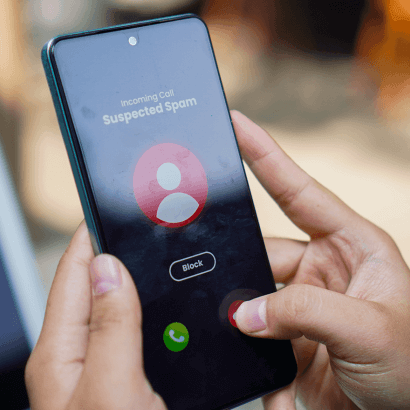How to spot and avoid mobile scams

Mobile scams are becoming more sophisticated every year, and scammers are always looking for new ways to trick you into giving up your personal information or money to them. With a little awareness, you can protect yourself and your phone. In this article, we will go over the most common scams and how you can avoid them.
Common types of mobile scams
- Phishing SMS (Smishing)
Text messages that look like they’re from your bank, courier, or even government agencies, asking you to click on a link.
What to look out for: Bad grammar, urgent language like “Act now!”, and strange-looking links. Also, trust your instincts. If it doesn't feel right, it probably isn’t.
- Fake App Downloads
Apps disguised as games, tools, or shopping deals that secretly steal your data.
What to look out for: Check if the app is available on Google Play or Apple App Store, or an app with very few (and suspiciously similar) reviews.
- Caller ID Spoofing
Scammers pretending to be from your bank or mobile provider.
What to look out for: The person on the other side of the line asking for your PIN, OTP, or password. This is info your bank or provider will never request for over the phone.
- Prize & Lottery Scams
“You’ve won!” messages asking for money or details to claim a prize.
What to look out for: If you don’t remember entering the competition.
How to protect yourself
Pause before clicking. If a message feels urgent, that’s often the scammer’s trick. Any reputable company can afford to wait and will give you notice and time before taking action against you.
Check the source. Always confirm with your bank, courier, even us as internet service provider directly.
Download safely. Stick to official app stores and look at real user reviews.
Guard your info. Never share PINs, OTPs, or banking details over text or phone.
Update your phone. Software updates often fix security gaps scammers exploit.
What to do if you suspect a scam
Don’t engage, immediately block the number.
Report SMS scams to your service provider (many allow you to forward spam to a short code).
Change your passwords if you clicked a suspicious link.
Keep an eye on your bank statements for unusual activity.
Your phone is more than just a device, it’s your wallet, calendar, and personal diary rolled into one. Treat it with the same care you’d give your bank card, and you’ll stay a step ahead of scammers. If you have more to add to this topic, please comment below or on our social media pages.

 Blog
Blog
Leave a Comment